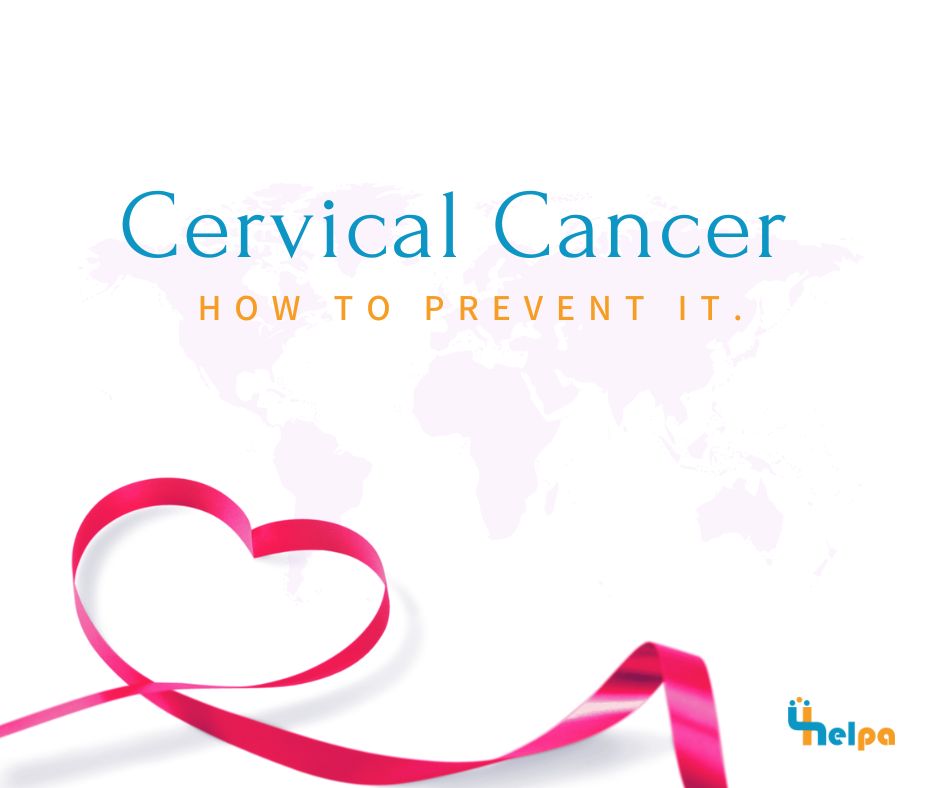
In Nigeria, cervical cancer is the second most common cancer affecting women. However, globally, cervical cancer is the fourth most common cancer among women.
Cervical cancer is the growth of abnormal cells in the female organ, known as the cervix. The cervix is an opening that connects the uterus and the vagina. Cervical cancer refers to all forms of malignancy that affect any part of the cervix. It is a slow-progressing type of malignancy.
Major Symptoms of Cervical Cancer
Before Stage 1 cancer occurs, there are stages known as cervical precancer. Precancerous stages involve structural changes in the cervix but do not show any visible signs.
However, when the precancer progresses to Stage 1 cervical, here are the main symptoms you’ll observe:
- Unusual vaginal bleeding—bleeding between your period, heavier menstrual flow, bleeding during or after sex, and postmenopausal bleeding. Bleeding symptoms are the most indicative symptoms, especially intermenstrual and postmenopausal bleeding. Once you notice any of them, go and check with a doctor immediately. It may not be cervical cancer, but it is safer to check.
- Unpleasant vaginal discharge
- Pain during sex
- Pelvic pain
- Pain in your lower back and abdomen
Other symptoms are;
- Weight loss
- Painful urination
- Blood in urine
- Loss of urination control
Causes of Cervical Cancer
Unlike most cancers, cervical cancer has a known cause. Most cases have been traced to the presence of the human papillomavirus (HPV). It is a sexually transmitted virus with more than 100 strains, but not all of them progress to cancer. Only high-risk variants such as HPV 16 and 18 often result in warts and cancer. In fact, most people don’t contract the cancer-causing variants; only a minority get these high-risk viruses.
People at risk of cervical cancer
The following group of people are more likely to get cervical cancer:
- Women with cervix between the ages of 45 and 65
- Women with a family history of cervical cancer—if your mother, aunt, or sister had cervical cancer, it is possible for you too.
- Early age at first sexual intercourse (ages 12–16)
- Early age at first childbirth (below 17)
- Women with a high natal history—the more children you’ve delivered, the higher your chances.
- Women in polygamous relationships
- Women with unfaithful male partners
- Women with a history of sexually transmitted diseases, especially herpes, syphilis, and gonorrhea
- People with lowered immunity, as in HIV/AIDS
- Women who smoke tobacco
- Previous history of vulva, vaginal, or bladder cancer
Cervical Cancer Prevention is Possible
The number one health tip for preventing cervical cancer is to avoid the main cause of the cancer (HPV) in the first place. This can be achieved via three strategies:
- By avoiding all means of contracting the human papillomavirus
- HPV vaccination
- By undergoing routine cervical screening
Prevention of HPV
Early Sexual Health Education: The key to ensuring safe sex is providing adolescents and early adults with accurate and adequate information about sex. Such education should involve advising them to wait until they are older and using protective barrier methods such as condoms. This will help them make better decisions to prevent the virus and early childbirth.
Safe sex practice: This entails inculcating the lessons from sex education into your lifestyle, and they include staying faithful to one partner, regular use of condoms to prevent STIs and HPV, and avoiding promiscuous men, among other things. Any practice that reduces your risk of contracting HPV should be taken seriously.
HPV Vaccination: Early vaccination against HPV is the most reliable way of building immunity against the virus. There are only two types of prophylactic vaccines that have been licensed: Gardasil and Cervarix. Vaccination is complete after three doses have been received.
Studies have shown that they are safe, highly effective in developing immunity, and prevent HPV. However, their efficiency is reduced in precancerous states, hence the need to receive the vaccine early.
Women in their 20s and 30s should visit their gynaecologist and make further enquiries about the three-dose vaccine. You may be required to undergo cervical screening before taking the vaccines, so see your doctor first.
In Nigeria, the HPV vaccine has been integrated into the national immunization schedule for 9–14-year-olds. This means that girls in that age range are eligible for free vaccinations. Although there is a school immunization campaign, it is important to confirm if your female children have received their shots. If not, take them to the nearest comprehensive health facility.
Routine Cervical Cancer Screening
The importance of routine cervical screening cannot be overemphasized. It is a tool for early detection, rapid diagnosis, and management to save lives. For certain ages, cervical screening is a prerequisite for vaccination.
There are various types of cervical screening, including pap smears, cytology, visual inspection, speculoscopy, and HPV DNA testing. They all have their peculiarities and advantages, and so it is advisable to consult a gynaecologist who will recommend the most suitable method for you.
The recommended age to commence screening is 21 or 3 years after first intercourse. Pap smears have a 3-year interval, while HPV DNA testing has a 5-year interval between consecutive tests. Screening must be regular until age 65, when it is discontinued if your results are consistently clear.
There are two possible outcomes of this screening: normal cells or the presence of abnormal cells. If the latter is the case, it doesn’t mean you have cancer yet. If anything, it is a precancerous state, which means you still have time to undergo minor treatment and recover fully. Depending on the severity of the precancer, these treatments may range from cryotherapy to large excisions of the cervix.
Takeaway
Cervical cancer can be prevented. Developed countries that adopted these preventive strategies earlier have reduced the disease burden significantly. By practicing safe sex, completing your vaccine dose, and presenting yourself for regular screening, you, too, can reduce your likelihood of cervical cancer.
Helpa is a medical fundraising app where you can receive donations to restore your health. Our platform proves that you don’t have to go through it alone. We’ll be with you every step of your journey. Take the bold and launch your medical fundraiser today!
